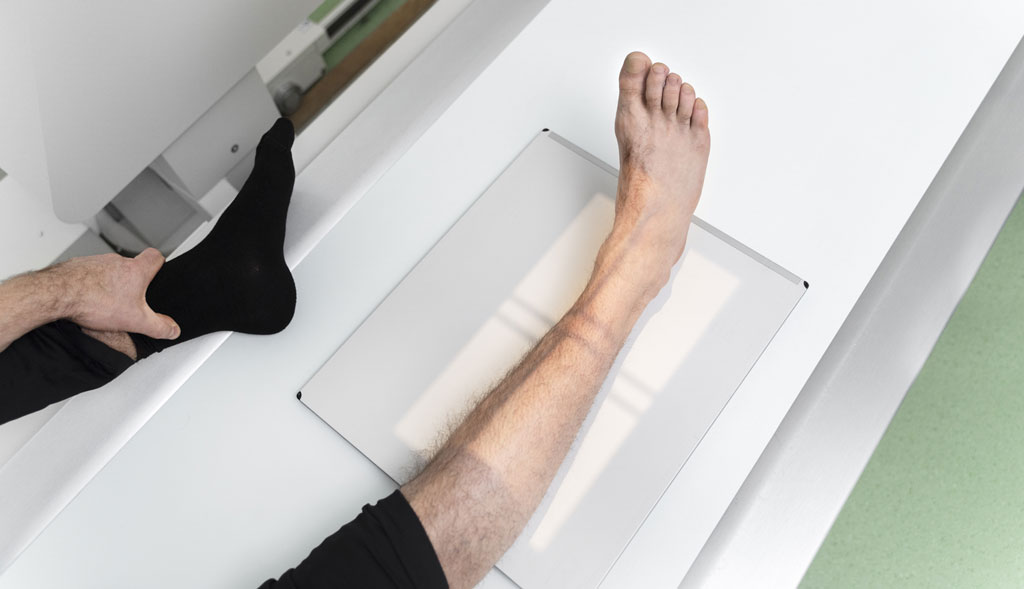
A chronic condition affecting millions globally, diabetes is the cause of numerous health conditions, many of which are often overlooked. One significant, yet lesser-known complication is the impact of diabetes on bone health. Diabetic patients, especially those with long-standing or poorly managed diabetes, are at an increased risk of developing bone-related issues such as osteoporosis and fractures. This is where DEXA (Dual-Energy X-ray Absorptiometry) scans come into play, offering a reliable and effective way to assess bone density and overall skeletal health.
Understanding the Link between Diabetes and Bone Health
What is a DEXA scan?
A DEXA scan is a non-invasive, highly precise imaging test used to measure bone mineral density. It utilizes two X-ray beams at different energy levels to capture images of the bones, usually focusing on areas like the spine, hip, and wrist, which are prone to fractures. By comparing the bone density measurements with standardized norms, healthcare providers can determine whether a patient has osteoporosis or is at risk of developing the condition.
For diabetic patients, a DEXA scan is particularly useful as it helps assess both bone density and body composition. The scan also provides information about the fat distribution and lean muscle mass, which are relevant factors in managing diabetes and preventing complications.
Why Are Diabetic Patients at Risk of Bone Complications?
There are several mechanisms through which diabetes affects bone health:
- Insulin Deficiency or Resistance: In Type 1 diabetes, insulin deficiency reduces bone formation because insulin is an important anabolic hormone for bones. In Type 2 diabetes, insulin resistance can interfere with bone turnover, leading to poor bone quality.
- Chronic Inflammation: Both types of diabetes are associated with chronic inflammation, which can disrupt the normal bone remodeling process, leading to decreased bone strength over time.
- Advanced Glycation End Products (AGEs): Elevated blood sugar levels in diabetic patients result in the formation of AGEs, which can accumulate in the bone matrix and impair its strength and flexibility, making bones more prone to fractures.
- Obesity: Many patients with Type 2 diabetes are also affected by obesity. While increased body weight can offer some protective benefits for bone density, it can also increase the risk of fall-related fractures due to reduced mobility and higher impact during falls.
- Medications: Some medications commonly prescribed for diabetes, such as thiazolidinediones (used to treat insulin resistance), have been shown to reduce bone mineral density and increase the risk of fractures.
DEXA Scans in Managing Bone Health in Diabetic Patients
Given the unique bone health challenges faced by diabetic patients, a DEXA scan plays a critical role in both diagnosing bone loss and monitoring the effectiveness of treatment plans. Here’s how:
1. Early Detection of Osteoporosis
Osteoporosis is a silent disease that often goes undetected until a fracture occurs. A DEXA scan can detect even small decreases in bone density before any symptoms arise, allowing for early intervention. For diabetic patients, early detection is crucial because fractures can lead to extended recovery times and further complications due to impaired healing processes in diabetes.
2. Assessing Fracture Risk
While bone mineral density is an important factor, diabetic patients may still have a higher risk of fractures despite normal or higher BMD readings. The DEXA scan provides valuable insights into bone quality and strength, offering a more comprehensive view of fracture risk.
3. Monitoring Progress
For diabetic patients undergoing treatment for bone loss, DEXA scans serve as a reliable way to track progress. By comparing scan results over time, healthcare providers can evaluate the effectiveness of medications or lifestyle changes aimed at improving bone health.
4. Body Composition Analysis
One of the advanced features of the DEXA scan is its ability to assess body composition, including fat distribution and muscle mass. This is particularly relevant for diabetic patients, as excess fat and reduced muscle mass are common complications. By tracking changes in body composition, healthcare providers can offer targeted advice for weight management and muscle-building strategies to improve both bone health and overall diabetes management.
Importance of Regular DEXA Scans for Diabetics
For individuals living with diabetes, regular DEXA scans should be considered an integral part of their overall health monitoring. Given the potential complications related to both bone density and body composition, it is recommended that diabetic patients undergo a DEXA scan at least once every two years, or more frequently if they are at high risk for osteoporosis or fractures.
In addition to regular scans, diabetic patients can take several steps to support bone health:
- Maintain Good Glycemic Control: Keeping blood sugar levels within a healthy range can reduce the risk of complications like AGEs accumulation and inflammation that negatively affect bones.
- Ensure Adequate Calcium and Vitamin D Intake: A diet rich in calcium and vitamin D supports bone health. If dietary intake is insufficient, supplements may be necessary.
- Engage in Weight-Bearing Exercises: Regular physical activity, especially weight-bearing exercises like walking, jogging, and resistance training, can help strengthen bones.
- Avoid Smoking and Excessive Alcohol Consumption: Both smoking and excessive alcohol can weaken bones, so it’s essential to avoid these habits.
Eastern Diagnostics’ Commitment
For diabetic patients, assessing bone health is not just about measuring bone mineral density—it’s about understanding the broader impact of the disease on the entire skeletal system. DEXA scans provide a reliable, non-invasive way to assess bone density, body composition, and fracture risk, helping healthcare providers design personalized treatment plans to prevent osteoporosis and related complications. By incorporating DEXA scans into regular diabetes management, patients can take proactive steps toward safeguarding their bone health and improving their overall quality of life. Eastern Diagnostics is committed to be with you. Just call us.
